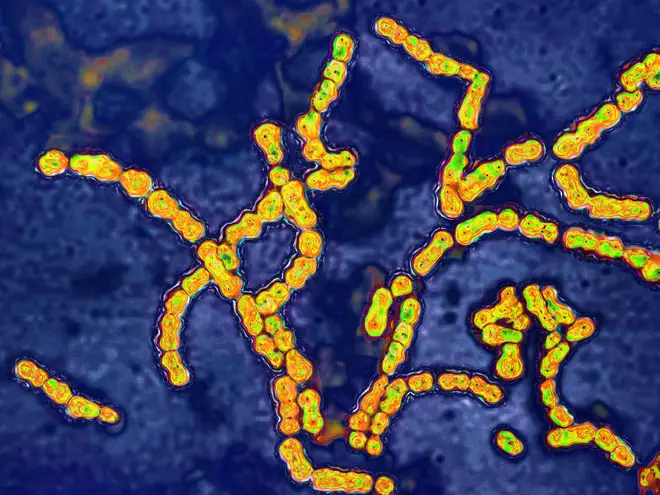
James O'Brien 10am - 1pm
2 December 2022, 13:44

Four children have died after becoming ill with Strep A – with parents asked to look out for any signs of the bacterial infection.
The bug, which can cause scarlet fever, has been spreading among children.
It's usually very mild and severe cases are not common.
Here's what Strep A is, the symptoms to look out for and how it's treated.
Group A Streptococcus is a form of bacteria sometimes found in a person's throat or on their skin, according to the NHS.
It often causes a mild illness like a sore throat or a skin infection, but it can become severe and even life threatening, a condition medics call invasive Group A Streptococcal disease.
It moves between person to person through close contact, like touching skin and kissing.
The infection usually moves between people harmlessly, and developing the disease by catching it from a relative or person you live with is rare.
Read more: Fourth child dies from Strep A bug as devastated parents pay tribute to 'caring' little boy
The NHS recommends thorough hand washing to fight the chances of being infected.
A high fever, severe muscle aches, localised muscle tenderness, redness at the site of a wound, vomiting and diarrhoea are all symptoms.
It can cause throat infection, scarlet fever or skin infections like cellulitis.
The NHS says anyone who has come into close contact with a person infected with the disease is at an increased risk.
Similarly, anyone aged over 65, diabetics, people with heart disease or cancer, patients who recently had chickenpox and those with HIV are also at increase risk.
People who use some types of steroid and intravenous drugs are also at a higher risk.
Speak to your GP if you think you have signs of the disease.
You should let them know if you've been in contact with someone who has had Group A recently.
If you are infected, you'll be treated with antibiotics.
In severe cases, surgery may be needed.
Read more: Two more confirmed cases of deadly bacterial infection that killed girl, 6, found in nearby school
A spokesman for the UK Health Security Agency said: "As part of our public health response to last week's tragic news, we issued some general information about the signs and symptoms of scarlet fever, which is not uncommon, to schools in the vicinity of Ashford Primary.
"A number of other illnesses typically circulate at this time of year and parents, school and nursery staff are advised to be aware of the symptoms, to keep up with vaccinations and to seek advice from NHS 111 if they have concerns."
Australian researchers have raised fears about a new "superbug" strain of Strep A which cannot be detected and is immune to some antibiotics.
“This new form of resistance is undetectable under conditions routinely used in pathology laboratories, making it very hard for clinicians to prescribe antibiotics that will effectively treat the infection, potentially leading to very poor outcomes and even premature death," Dr Timothy Barnett, head of the Strep A Pathogenesis and Diagnostics team at Wesfarmers Centre of Vaccines and Infectious Diseases, warned this week.